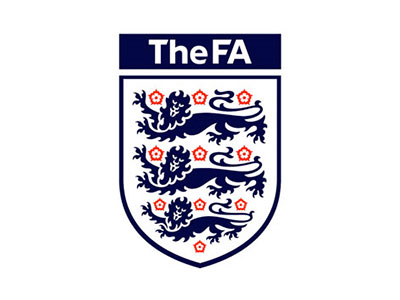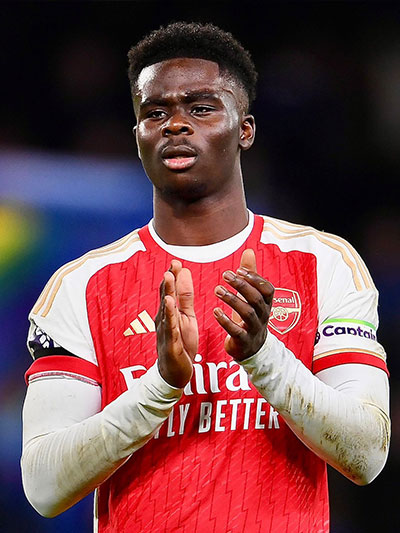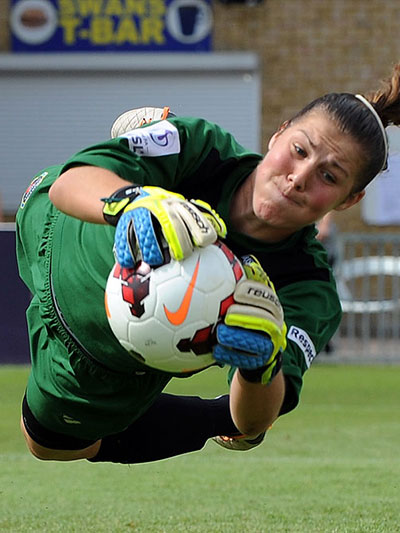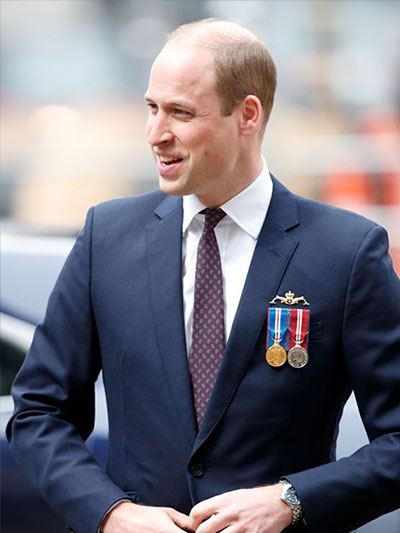♣ The FA (The Football Association)
The Football Association (known by its abbreviation The FA) is the governing body of association football in England and the Crown Dependencies of Jersey, Guernsey and the Isle of Man. Formed in 1863, it is the oldest football association in the world and is responsible for overseeing all aspects of the amateur and professional game in its territory.
The FA facilitates all competitive football matches within its remit at national level, and indirectly at local level through the county football associations. It runs numerous competitions, the most famous of which is the FA Cup. It is also responsible for appointing the management of the men's, women's, and youth national football teams.
The FA is a member of both UEFA and FIFA and holds a permanent seat on the International Football Association Board (IFAB) which is responsible for the Laws of the Game. As the first football association, it does not use the national name "English" in its title. The FA is based at Wembley Stadium, London. The FA is a member of the British Olympic Association, meaning that the FA has control over the men's and women's Great Britain Olympic football team.
All of England's professional football teams are members of the Football Association. Although it does not run the day-to-day operations of the Premier League, it has veto power over the appointment of the league chairman and chief executive and over any changes to league rules. The English Football League, made up of the three fully professional divisions below the Premier League, is self-governing, subject to the FA's sanctions.
▲ The FA Emblem
▼ Connection Pages
♣ History
For centuries before the first meeting of the Football Association in the Freemasons' Tavern on Great Queen Street, London on 26 October 1863, there were no universally accepted rules for playing football. Ebenezer Cobb Morley, as captain of Barnes, in 1862 wrote to Bell's Life newspaper proposing a governing body for the sport "with the object of establishing a definite code of rules for the regulation of the game"; the letter led to the first meeting at The Freemasons' Tavern that created the FA in 1863. Morley was a founding member. Six meetings near London's Covent Garden, at 81–82 Long Acre, ended in a split between the Association football and Rugby football. Both of them had their own uniforms, rituals, gestures and highly formalised rules.
In each public school the game was formalised according to local conditions; but when the schoolboys reached university, chaos ensued when the players used different rules, so members of the University of Cambridge devised and published a set of Cambridge Rules in 1848 which was widely adopted. Another set of rules, the Sheffield Rules, was used by a number of clubs in the North of England from the 1850s.
Eleven London football clubs and schools representatives met on 26 October 1863 to agree on common rules.
 The FA England Awards
The FA England Awards
The FA England Awards was an award ceremony hosted by The Football Association but is now an annual online vote for England supporters. The inaugural edition took place on 3 February 2003, although The FA Women's Football Awards started in 1999.
Senior Men's Player of the Year
The Senior Men's Player of the Year is a football award presented by The FA to the most outstanding performers of the England national team. The award was originally given out at the end of the calendar year but from 2020-21 it moved to a seasonal honour and is decided by an online poll by England fans on EnglandFootball.com (formerly TheFA.com).
▲ Bukayo Saka (2022–23 Win)
Senior Women's Player of the Year
▲ Mary Earps (2022–23 Win)
♣ Women's football
By 1921 women's football had become increasingly popular through the charitable games played by women's teams during and after the First World War. In a move that was widely seen as caused by jealousy of the crowds' interest in women's games which frequently exceeded that of the top men's teams, in 1921 the Football Association banned all women's teams from playing on grounds affiliated to the FA because they thought football damaged women's bodies. For several decades, this meant that women's football virtually ceased to exist.
The decision to exclude women was only reversed from 1969 when, after the increased interest in football caused by England's 1966 World Cup triumph, the Women's Football Association was founded, although it would take a further two years – and an order from UEFA – to force the (men's) Football Association to remove its restrictions on the playing rights of women's teams. It was not until 1983 that the WFA was able to affiliate to the FA as a "County Association" and only in 1993 did the FA found the "Women's Football Committee" to run women's football in England. The "Women's Football Conference", as it is now known, has representation on the FA Council equivalent to a County Football Association.
♣ Relationship with FIFA
The Football Association first joined FIFA in 1905. The British Associations (England, Ireland, Scotland and Wales) opted to leave FIFA after World War I when FIFA chose not to exclude those who were part of the Central Powers from the organisation. The British Associations' stance had changed by 1922 and in 1924 they had rejoined FIFA.
The British Olympic Association had fought against 'broken time' – monetary compensation for athletes' earnings when competing in the Olympic games. At the 1925 Olympic Congress in Prague, the British had made an amendment that concluded governing federations should define amateur status for their sports but only in accordance with the definition of amateurism accepted by the Olympic Congress. In 1928, Switzerland proposed to FIFA that in certain circumstances, 'broken time' payments should be allowed and FIFA accepted. The FA resigned from FIFA in protest against the proposal. As a result of the FA's resignation, England did not participate in the 1930, 1934 or 1938 FIFA World Cup.
At the 1930 Olympic Congress in Berlin, Belgian delegates proposed that for each sport the definition of amateur status be left to its international federation. The BOA argued for a common definition of amateurism and argued that 'broken time' payments were against the Olympic ideal.
The FA rejoined FIFA in 1946 and participated in their first World Cup in 1950. One of the first actions of the Football Association was to request the expulsion of the German and Japanese national football associations for their countries' role in World War II. Germany and Japan were prevented from qualifying for the 1950 FIFA World Cup as a consequence. They were re-acquainted with FIFA in 1950 following a second request from Switzerland who had had a previous request rejected in 1948.
♣ Competitions
The FA runs several competitions:
Current
- FA Cup
- FA Trophy
- FA Vase
- Women's FA Cup
- FA Women's League Cup
- FA Women's National League Cup
- FA Women's National League Plate
- FA Youth Cup
- FA Sunday Cup
- FA County Youth Cup
- FA Community Shield
- Women's FA Community Shield
- FA Inter-League Cup
- FA Futsal Cup
- FA People's Cup
FA Cup top scorers by year
▲ Sammie Szmodics (FA Cup top scorer 2023-24)
♣ Finance and governance
Finances
The FA's main commercial asset is its ownership of the rights to England internationals and the FA Cup. Broadcasting income remains the FA's largest revenue stream with both domestic and international broadcasting rights for England fixtures and the FA Cup tied up until at least 2021.
For the four seasons from 2008 to 2012, the FA secured £425 million from ITV and Setanta for England and FA Cup games domestic television rights, a 42% increase over the previous contract, and £145 million for overseas television rights, up 272% on the £39 million received for the previous four-year period. However, during 2008–09 Setanta UK went into administration, which weakened the FA's cashflow position.
Turnover for the year ending 31 July 2016 was £370 million on which it made a profit after tax of £7 million. It has also made an investment of £125 million back into every level of Football in 2016. In July 2015 the FA announced plans to carry out a significant organisational restructure, in order to deliver considerable cost savings to invest in elite England teams, facilities and grassroots coaching.
The FA's income does not include the turnover of English football clubs, which are independent businesses. As well as running its own operations the FA chooses five charities each year to which it gives financial support.
In three years up to 2014, the FA received £350,000 in fines from players over comments made on Twitter. The highest fine imposed was a £90,000 fine to Ashley Cole in 2012 after calling the FA "a bunch of twats." The FA became stricter on comments made by players on Twitter, disciplining 121 players in three years.
Principals
The FA has a figurehead President, who since 1939 has always been a member of the British royal family. The Chairman of the FA has overall responsibility for policy. Traditionally this person rose through the ranks of the FA's committee structure (e.g. by holding posts such as the chairmanship of a county football association). In 2008 politician David Triesman was appointed as the FA's first "independent chairman", the first from outside the football hierarchy. The day-to-day head of the FA was known as the Secretary until 1989, when the job title was changed to Chief Executive.
▲ William, Prince of Wales is the current President of the FA
♣ The FA Go Page
 Premier League
Premier League La Liga
La Liga Bundesliga
Bundesliga Serie A
Serie A Ligue 1
Ligue 1 Liga Portugal
Liga Portugal Eredivisie
Eredivisie Süper Lig
Süper Lig MLS
MLS Série A
Série A J1 League
J1 League Saudi Pro League
Saudi Pro League WSL
WSL Première Ligue
Première Ligue NWSL
NWSL







 Chapter 11. Records & Awards > The FA (The Football Association) Awards
Chapter 11. Records & Awards > The FA (The Football Association) Awards
 The FA England Awards
The FA England Awards




 •Wikipedia
•Wikipedia








